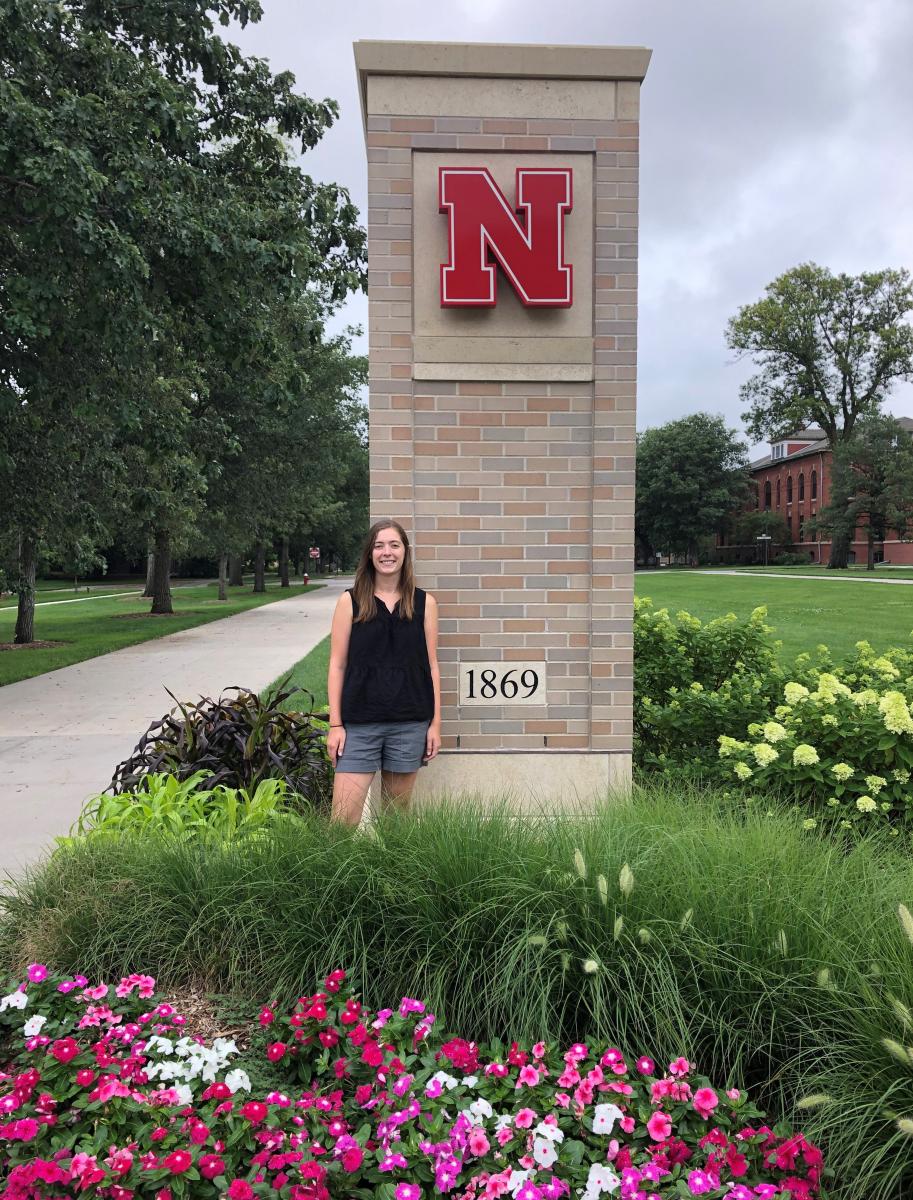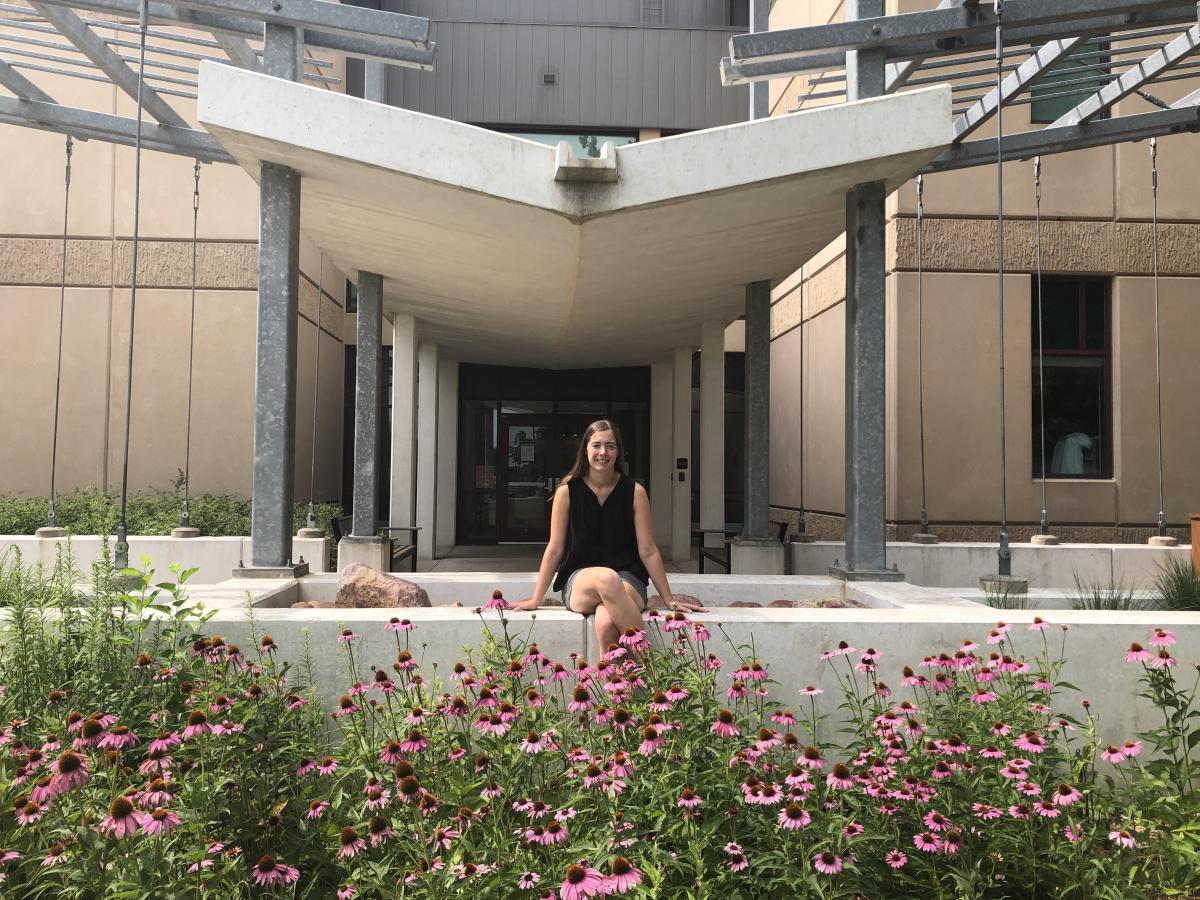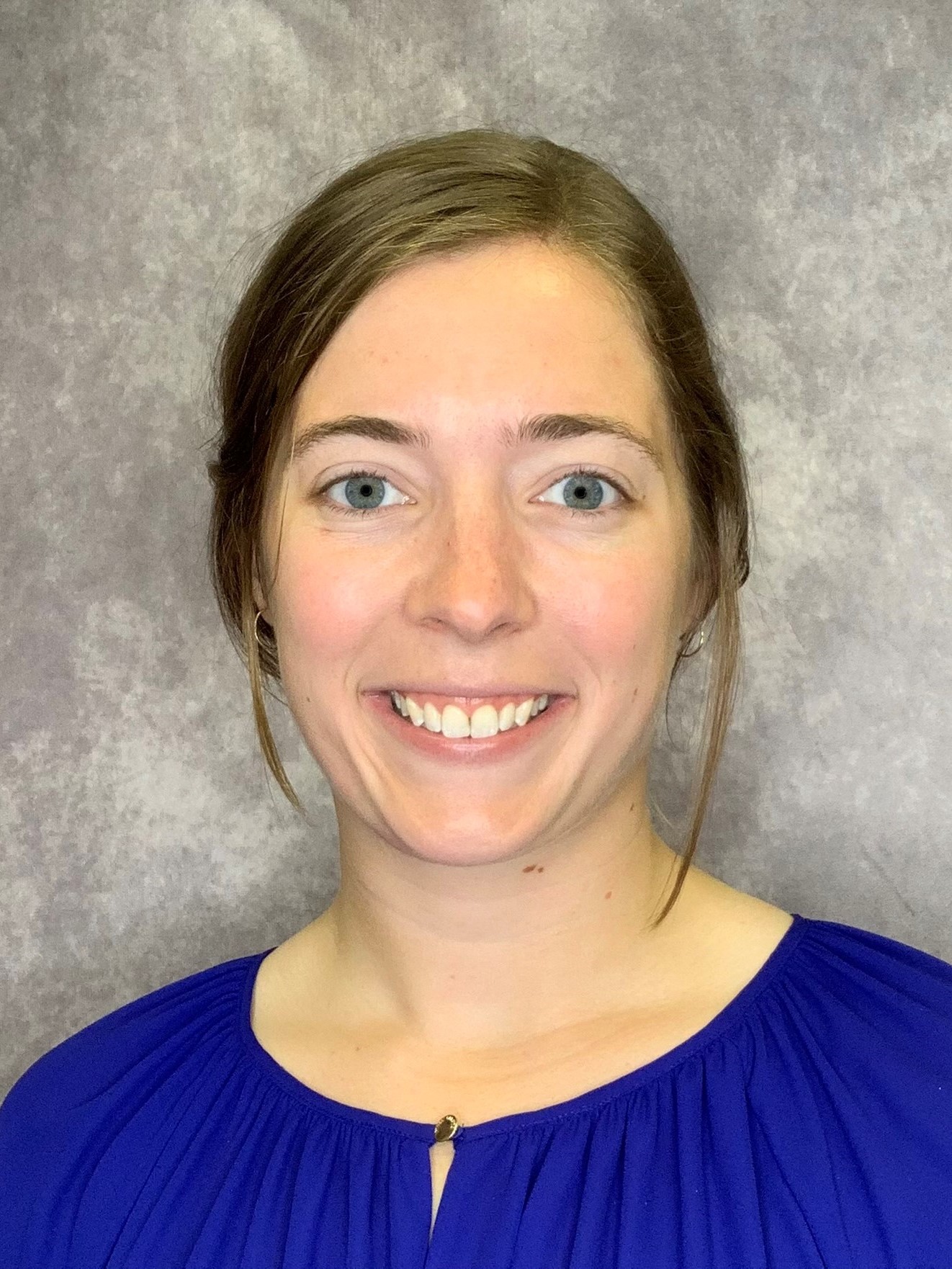Collaborating to meet ag challenges
NRT master’s student Kate Bird had an interest in managing resources in agricultural environments even while earning her political science degree at Wellesley College, a historically women’s college not known for agriculture. After graduating, she saw a job posting of the Nebraska NRT and knew she had found her dream job.
“It was one of those experiences where I was reading the job description, and I was like, 'Yep, yep, check. This sounds like exactly what I’m interested in,’” she says.
The Oregon native applied and soon found herself packing her bags during a full-throttle pandemic and moving to a state she had never seen before.
Her interest in the interdisciplinary nature of the Nebraska NRT and the chance to work with students from different disciplines and backgrounds on challenges in agriculture was stronger than any notion that Nebraska is not for everyone.

“The NRT is what drew me to Nebraska,” she says. “It seemed like a great fit for both my background and my current interest and where I wanted to go in the future.”
At Nebraska, she quickly homed in on two areas of research she now hopes to combine in her thesis. She is looking at landscape connectivity along the Central Platte River and at the land management practices of Nebraska ranchers and other land managers.
In the Central Platte project, Bird is looking at patches of land along the river and how those patches are connected and support mammals and birds of conservation interest. She says the land has changed over many years of agricultural production and the river has changed too. She plans to use network analysis to study the landscape.
“That basically breaks the landscape up into little nodes of habitat and then edges, which are connections between those nodes, and you use that system to understand how species are able to move around and use the landscape and how that landscape is supporting those species,” she says.
For her land management project, she is working with the new adaptive management program started at the university’s Barta Brothers Ranch. She plans to use surveys and interviews to better understand the level of certainty land managers have about whether their practices are achieving their goals in areas such as livestock production, support of biodiversity and carbon sequestration. She also plans to look at how willing they are to take risks and experiment in managing their land.
Both projects involve competing interests and intrigue her with the chance to solve problems.
“How do we ensure livelihoods of agricultural producers, how do we also ensure the quality of our environment or how do we produce without degrading the environment, how do we support species? I think that’s a challenge,” she says. “Those are different fields. There are social components, cultural components, environmental components. That’s an interesting and important challenge because we need all of those things. My driving interest is, ‘How do we figure those things out, and how do we better understand how all of those components in the system work together?’”

Her interest in such challenges led her to take part in the National Science Foundation’s INFEWS-ER scholars program, join the Council for Resilience Education and take a global class on resilience through the Resilience Alliance.
Such extra opportunities, along with the biweekly meetings of the NRT and the closeness of the program with its interpersonal work and collaborations, proved valuable to her, she says.
“I’m pretty self-driven and independent, but I think having the separation during Covid really made me realize how much I value those opportunities to work with other people or even if it’s not a close collaboration, just getting to bounce ideas off someone. Those are things that really give me a lot of energy,” she says. “Looking forward now, I’m thinking I professionally want to make sure that that’s a component of a job I have.”
She is open to a governmental, nonprofit or private position in meeting the challenges of agriculture.
“What I am more interested in is that broader goal of promoting natural resource management that both maximizes and balances the diverse interests and benefits in agricultural systems,” she says.
— Ronica Stromberg, NRT Program Coordinator



